South Caucasus: New architecture of transport links Tbilisi hosts fifth Silk Road Forum
On October 22–23, 2025, the capital of Georgia hosted the fifth edition of the Tbilisi Silk Road Forum. The event was held under the patronage of the Prime Minister of Georgia, Irakli Kobakhidze, who opened the forum together with the Prime Minister of Azerbaijan, Ali Asadov, and the Prime Minister of Armenia, Nikol Pashinyan.
The Tbilisi Silk Road Forum has been held since 2015, occurring once every two years. The main theme and slogan of this year’s forum is Invest in Connectivity – Grow in Stability. The Tbilisi Forum reflects Georgia’s role in the dynamic development of transit infrastructure, which makes both Georgia and the entire region a crucial part of international communications.
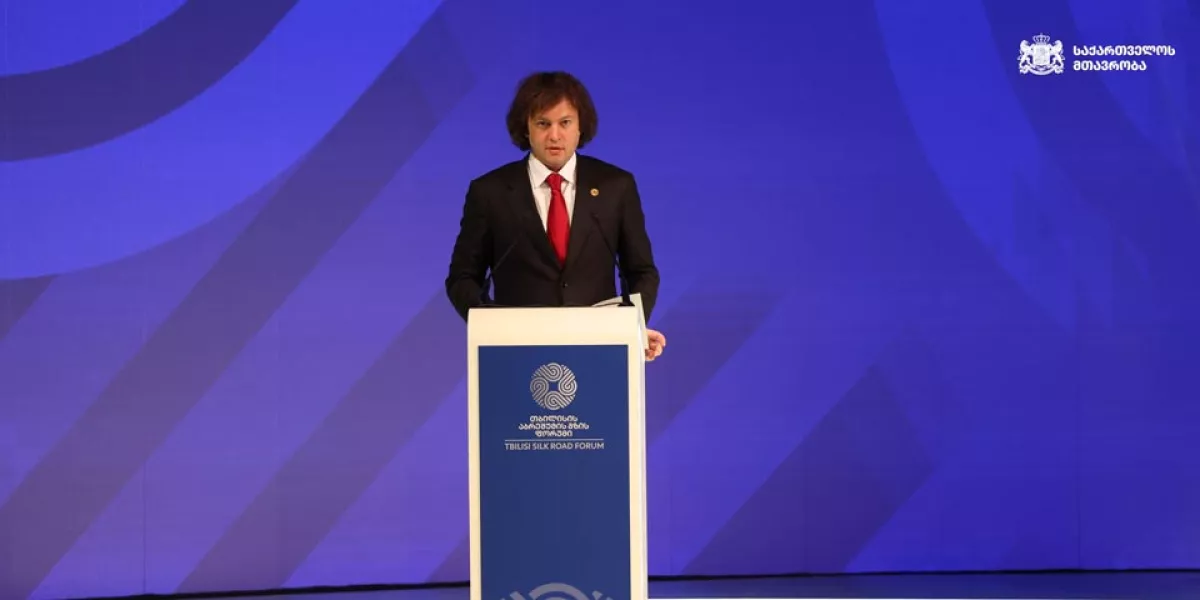
“Georgia’s unique geographical position is complemented and strengthened by our government’s proactive foreign policy. We have secured free trade agreements with the European Union, as well as with China, the United Kingdom, the United Arab Emirates, and other neighbouring countries. We are implementing extensive infrastructure projects, constructing new ports, modernising railways, and developing digital and energy corridors, such as the Black Sea submarine cable project, which will connect the region’s renewable energy sources with the European market. All of these initiatives create unique business opportunities,” Georgian Prime Minister Irakli Kobakhidze said at the forum’s opening.
A key factor in the development of transit through Georgia is its cooperation with Azerbaijan, which received particular attention at the forum. It was no coincidence that Azerbaijani Prime Minister Ali Asadov emphasised that for centuries, Azerbaijan and Georgia have developed along the historic Silk Road, linking the West and the East, serving as a bridge between Europe and Asia, contributing to the growth of trade and the strengthening of economic ties, as well as promoting cultural and humanitarian exchange.
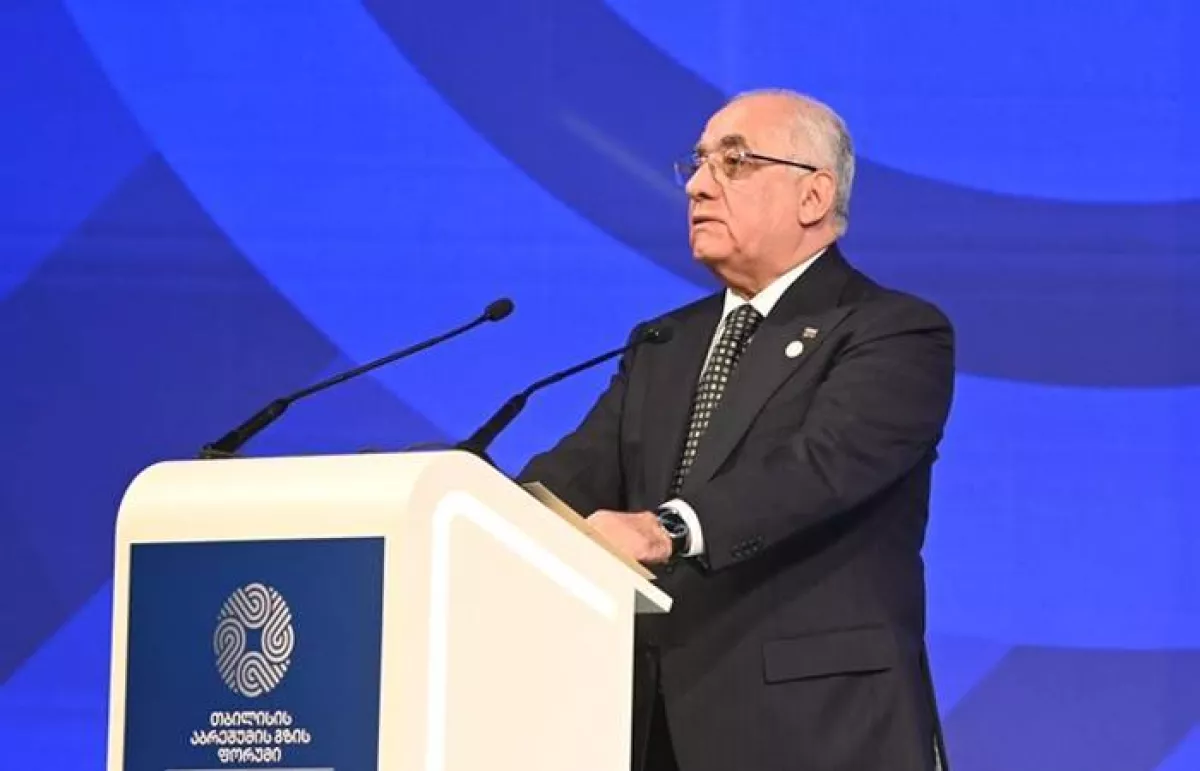
“Azerbaijan and Georgia today play a leading role in strengthening these routes, developing regional cooperation, and reviving their historical mission in a new format and new era — to ensure that a modern transport and logistics corridor connects Europe and Asia along the Eurasian route. The long-standing friendship and strategic partnership between our countries has become one of the key factors of stability and peace in the region. Today, our nations are reliable partners not only in the political sphere but also in economic, energy, and transport cooperation. The transport and transit sector has traditionally been one of the priorities on our agenda. This sector holds great potential — trade will expand, investment will increase, and new economic opportunities will open,” the Prime Minister of Azerbaijan stressed.
The geopolitical context of this year’s Tbilisi Silk Road Forum and its significance differ considerably from previous editions. The fifth forum in 2025 can rightfully be called the “Forum of a Peaceful South Caucasus.”
It is highly symbolic that on the eve of the forum, during his visit to Astana, President of Azerbaijan Ilham Aliyev announced at a joint press conference with his Kazakh counterpart Kassym-Jomart Tokayev that Baku had officially lifted all restrictions on the transit of goods to Armenia that had been in place since the time of occupation.
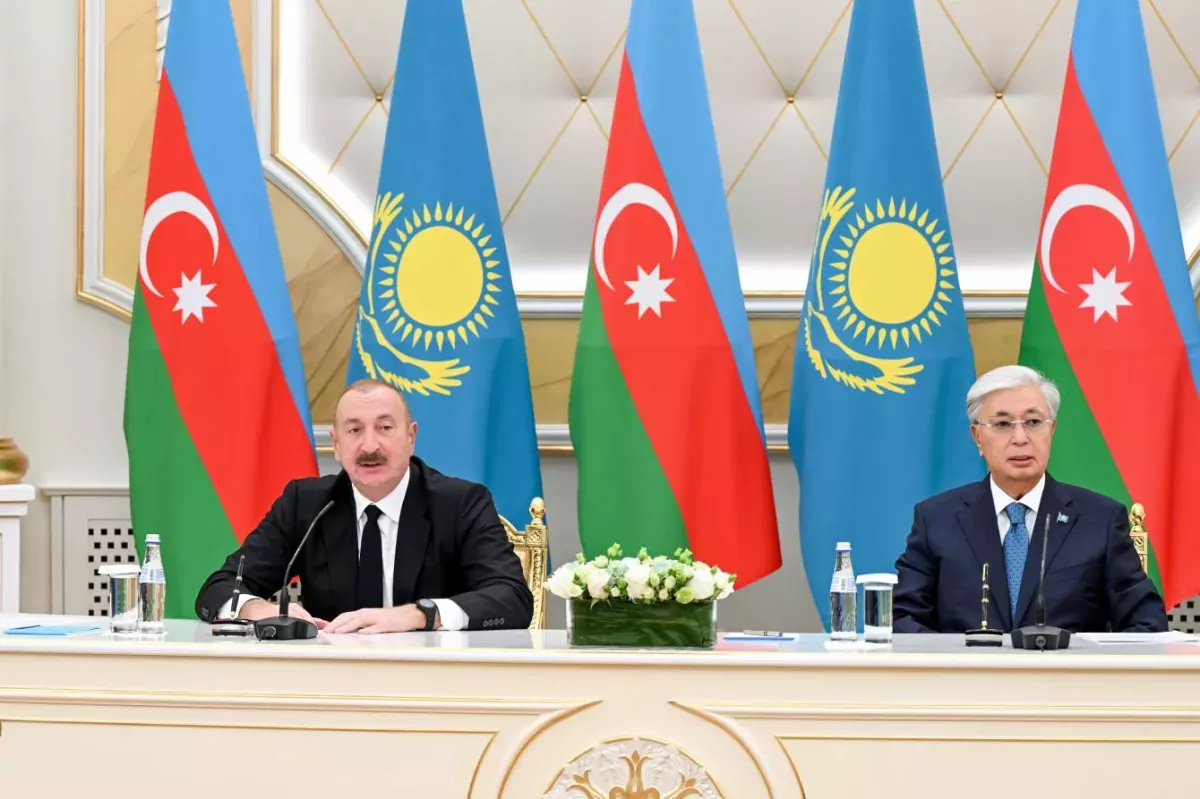
According to Ilham Aliyev, “this is also a clear indication that peace between Azerbaijan and Armenia is no longer merely on paper but has already become a matter of practice.” This decision can be considered historic, as trade between the two countries has been suspended for decades. Thus, in the near future, a new “branch” of the Silk Road will be laid through the Armenian–Azerbaijani border — a topic also addressed by Armenian Prime Minister Nikol Pashinyan at the forum.
“Peace has returned to our region, and all that remains for us is to build upon it by increasing cargo turnover, expanding energy networks, developing electronic infrastructure, and fostering greater prosperity and growth. These efforts will serve to strengthen the South Caucasus further,” said Pashinyan.
According to him, all three countries — Georgia, Armenia, and Azerbaijan — have the potential to enhance the well-being of their peoples. Pashinyan also emphasised the importance of opening borders.
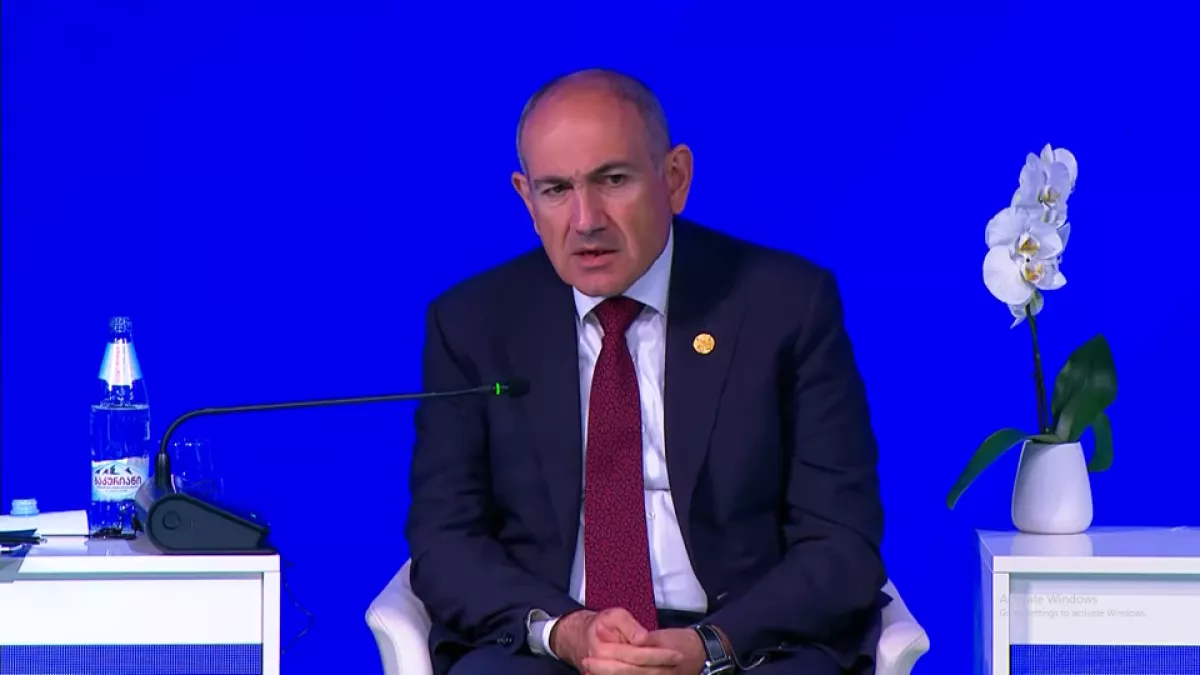
“We need to develop regional and global transport and communication links not only through Armenia, the Islamic Republic of Iran, Azerbaijan, Türkiye, and Georgia, but also by opening borders with these countries. I am pleased to confirm that we have made significant progress in this regard,” said Nikol Pashinyan.
The Armenian Prime Minister also focused on the issue of restoring transit through Zangezur.
“From a political standpoint, we are ready to ensure railway transit between Türkiye and the Nakhchivan Autonomous Republic, as well as between Türkiye and the main part of Azerbaijan,” the Armenian Prime Minister noted. According to him, sections of the railway require repair or reconstruction, and the technical issues are expected to be resolved within two to three years.
“In the near future, pipelines and power transmission lines connecting Azerbaijan, Armenia, and Türkiye will pass through Armenian territory. Railway and road connections will also be established. All of this is being considered within the framework of the TRIPP programme. We are also holding relevant negotiations with Türkiye and Azerbaijan, as well as cooperating with the United States to implement these agreements,” added Nikol Pashinyan.
At the Silk Road Forum, participants were briefed on upcoming plans for large-scale infrastructure projects. During the panel discussion titled Infrastructure Projects to Enhance Georgia’s Connectivity, Deputy Minister of Economy and Sustainable Development of Georgia Tamar Ioseliani announced that the deep-water port of Anaklia, being constructed with the participation of Chinese investors, is expected to receive its first vessel in 2029.
Meanwhile, the CEO of Georgian Railways JSC, Lasha Abashidze, stated at a panel within the 5th Tbilisi Silk Road Forum that starting next year, Georgia will begin actively upgrading the Baku–Tbilisi–Kars (BTK) railway.
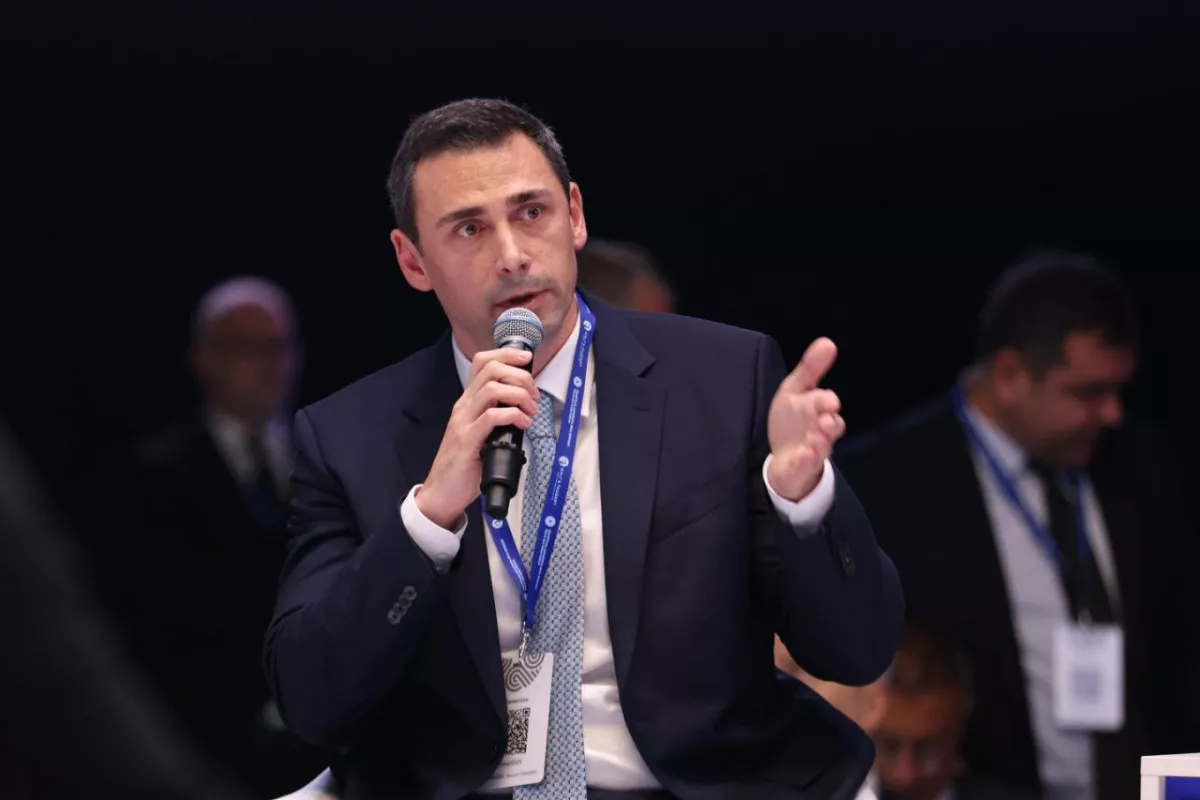
“As part of this project, a new terminal is planned to be built in Akhalkalaki. This terminal will serve as a connecting hub for specific operations. Through the Baku–Tbilisi–Kars project, we are establishing new links, which allow us to find new partners for the Middle Corridor. This route is capable of transporting up to 5 million tonnes of cargo,” Abashidze said.
He emphasised that by 2027, both the safety and speed of rail freight transportation in Georgia will significantly increase. This will enhance the importance of transit along the Middle Corridor — especially since the railways of Azerbaijan, Georgia, and Kazakhstan have recently agreed to introduce a unified tariff for shipments along this route.
As a key country along the Middle Corridor, Georgia is becoming increasingly attractive to international investors — a trend confirmed by the growing interest from the United Arab Emirates. Within the framework of the Tbilisi Silk Road Forum, Georgia’s Minister of Economy and Sustainable Development Mariam Kvrivishvili and Eagle Hills founder Mohamed Ali Alabbar signed an investment agreement and a contract establishing a joint company. Under these agreements, Eagle Hills will implement development projects in Tbilisi and Adjara (Gonio) with a total value of $6.6 billion.
“Georgia has been designated as a project partner and will hold a 33% ownership stake in the company. It should be noted that this level of investment is the largest in Georgia’s history,” the Ministry of Economy and Sustainable Development of Georgia said in a statement.
As part of the current Tbilisi Silk Road Forum, the Tbilisi Financial Summit was held for the first time on October 23, 2025. One of its co-organisers was the Global Financial Technology Network (GFTN) — a leading international platform in the field of financial technologies that brings together financial institutions, fintech companies, and investors from across Europe and Asia, headquartered in Singapore.
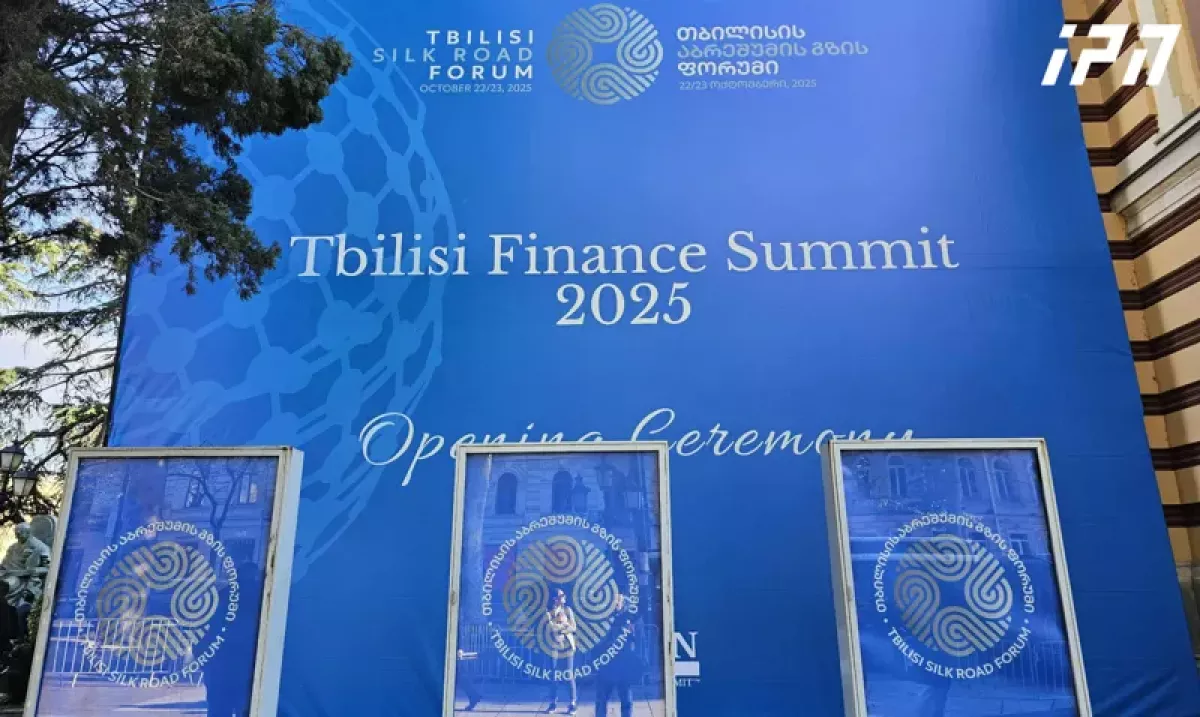
The importance of the Tbilisi Financial Summit was particularly highlighted by Georgian Prime Minister Irakli Kobakhidze in his speech at the forum. According to him, this event, organised in cooperation with Singaporean partners, solidifies Tbilisi’s “status as the region’s financial and technological innovation hub.”
The fifth Tbilisi Silk Road Forum completely displaced from the public agenda the attempts of Georgia’s pro-Western opposition to destabilise the situation in the country. Symbolically, on October 22, 2025, for the first time in nearly a year, a small group of radical protesters failed to block Rustaveli Avenue. According to Prime Minister Irakli Kobakhidze, this demonstrates that the law against radicalism has begun to work, as “it is unacceptable for 50 radicals to hold 1,700,000 people hostage.”
It is evident that constructive geopolitical players, investors, and international businesses need a stable Georgia — a key country for the development of international transit routes across Eurasia.
By Vladimir Tskhvediani, Georgia, exclusively for Caliber.Az








